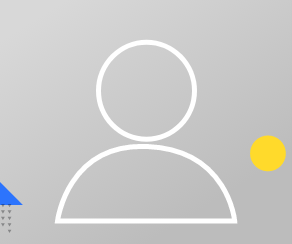Alexander Bayden, Ph.D.

Alexander Bayden
Computational Chemist
CMDBioscience, Inc.
B.S., Chemistry, Virginia Tech, Blacksburg
Ph.D., University of Pittsburgh, PA
Alexander Bayden works at CMDBioscience, a small biopharmaceutical company located in the Science Park on the campus of Yale University. The company develops unique software to model peptides and provides modeling services to their partners: pharmaceutical companies and academic groups who do experimental work. Although sometimes CMDBioscience acts as a Contract Research Organization, it also has its own drug discovery projects. Bayden uses many proprietary structure–property methods, Monte Carlo calculations, data techniques similar to bioinformatics, and a database of peptide scaffolds that his company is developing.
Bayden received his bachelor's in chemistry from Virginia Tech University, although he started out as a physics major. "I didn't realize what physics involved when I signed up," he says. Instead of the practical problem-solving he anticipated, the work was much more theoretical, and he saw very few career options that would interest him. "I wanted to work on real-life applications with job prospects," he recalls. He discussed his concerns and interests with one of his physics professors, who recommended that he switch to chemistry instead.
If you want to do computational chemistry, learn how to program. You have a huge advantage if you can customize software and write your own code.
A summer undergraduate internship in photo-acoustic calorimetry at the University of Pittsburgh convinced Bayden that he wanted to attend graduate school there. During the internship, he rewrote software that analyzed sound waves coming from laser pulses interacting with solutions. He enjoyed working on a real programming project, and he made valuable career contacts.
As a graduate student at Pittsburgh, Bayden did a lot of molecular modeling and scientific programming. He modeled organometallic catalysis and adsorption of hydrogen on the silicon surface. He also improved an existing global optimization algorithm. Instead of teaching, Bayden preferred to do work developing and maintaining the departmental web site.
After graduate school, he spent some time prototyping a website for a financial startup company and doing computer repairs before beginning a postdoc at Virginia Commonwealth University. He learned to program in the Python language for his postdoc, a skill that has served him well ever since. After a second postdoc for AstraZeneca (a large pharmaceutical company), he went to work for CMDBioscience, where he has been for two years.
What to know if you are interested in this type of career:
If you want to do computational chemistry, learn how to program. You have a huge advantage if you can customize software and write your own code. You don't have to go deep into the code, but you can automate things and this frees up your time to work more productively.
Another thing to realize is that there is a gap between the math that the U.S. undergraduate chemistry curriculum provides and the demands of the U.S. graduate school programs. As an undergraduate I took four math courses that were not required for chemistry majors. During the summer semester at the beginning of graduate school I took one more math course that was not required. Without these courses I would not have passed the physical chemistry core courses during my first year of graduate school.
Travel schedule:
I go to conferences a couple of times a year. It averages out to about one to two days a month.
Best career advice you've received:
When my physics professor said, "Go into chemistry, not physics" it got me into an area that was a much better fit to my interests.
Favorite ACS resource:
I use Scifinder to look up journal articles and keep up with my field. I run searches on specific topics.

